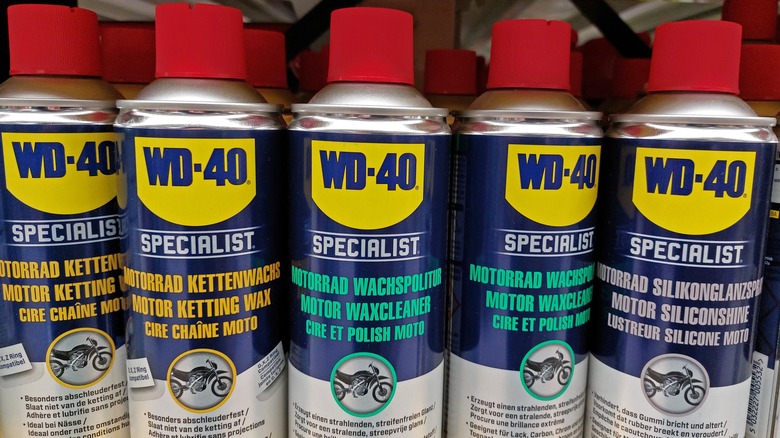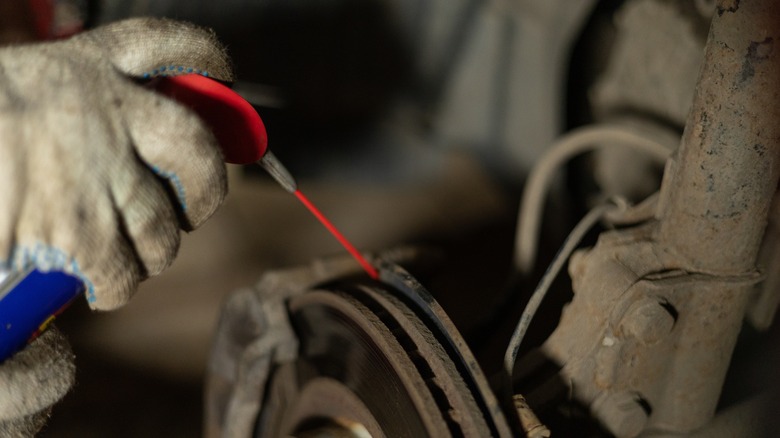WD-40 Vs. WD-40 Gel Lube: What's The Difference & When Should You Use Each Type?
The red and blue WD-40 can has an almost endless array of uses for home, commercial, and industrial applications. From lubricating and protecting moving parts to more odd WD-40 hacks breaking in baseball gloves or removing crayon markings from walls, the multi-use product has become an all-around problem solver for cars, trucks, mowers, boats, engine builders, and the typical DIY enthusiast.
The WD-40 Company — formerly known as the Rocket Chemical Company — expanded its product lineup in 2011 by introducing the Specialist line of lubricants and protectants. These "professional-grade" products include an electric parts cleaner, a silicone spray, a degreasing lubricant, and a dry lube.
The Specialist line also features the Gel Lube no-drip spray, a heavy-duty lubricant that WD-40 claims can dispel moisture and prevent rust for up to one year. It still contains the patented lubricating formula that WD-40 initially developed for space rockets, and it remains safe to use on metal, plastic, or rubber parts. Still, it has a thicker, gel-like consistency that offers year-round, all-weather corrosion protection for moving parts or vertically oriented components. But is it really that different from the regular WD-40 spray?
The difference is in the application
According to WD-40, the Specialist Gel Lube is great for bearings, cables, chains, rollers, gears, and other moving parts. The material composition differs slightly from the standard WD-40 Multi-Use Product, and the Specialist Gel Lube has a thicker, foam-like consistency. However, the two share many core ingredients, making them useful in similar situations.
The gel product clings on the surface longer and is ideal for vertical surfaces or hard-to-reach areas that demand heavy lubrication and relentless protection against dirt, mud, rust, corrosion, and changing weather. Both products can be used in tandem as well, cleaning and relubricating surfaces with WD-40 Multi-Use, wiping it down with a cloth, and giving it a final blast of WD-40 Gel Lube.
Of course, there are some things you should never use WD-40 on. For example, you should never use WD-40 to replace the oil inside your car's engine. However, WD-40's Specialist Gel Lube is worth trying for critical moving parts that require durable shielding from rust, corrosion, and extreme weather.

